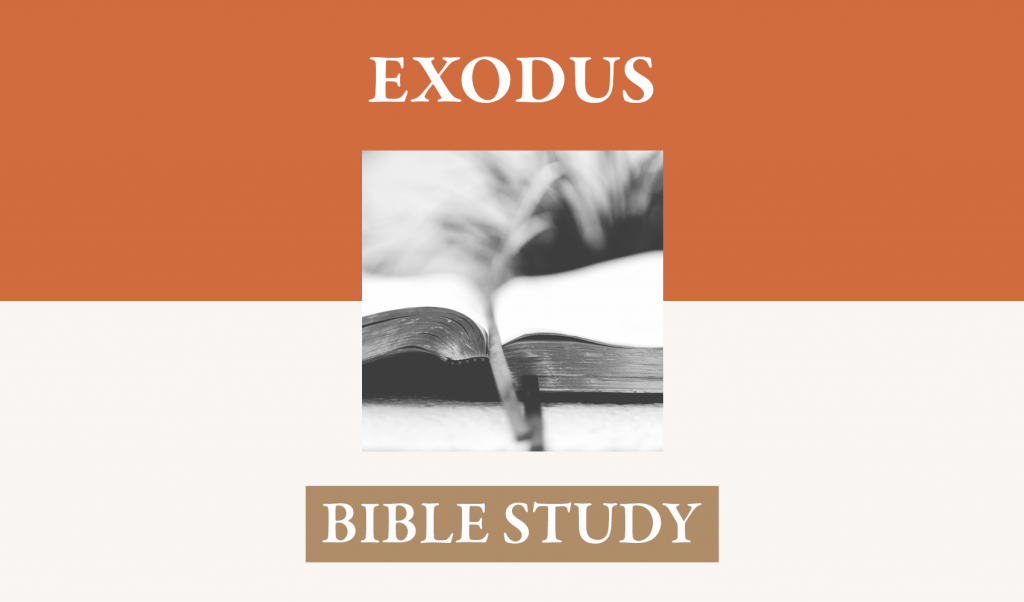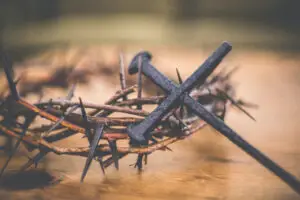Exodus 22:21–27 and Leviticus 19:9, 10
Having just been rescued from the cruel oppression in Egypt and having received the Law of God, the Lord begins a series of applications of this historical event and the Ten Commandments that should govern them in their new situation.
I. “You shall not wrong a sojourner or oppress him, for you were sojourners in the land of Egypt“ (Exodus 22:21).
Also see 23:9, “You shall not oppress a stranger, since you yourselves know the feelings of a stranger, for you also were strangers in the land of Egypt.”
A. After they settle in the land, non-Israelites who sojourn there, either passing through or settling, must be treated with respect.
If they bear no malice either physically or spiritually and do not seek to institute any kind of false worship, their time there, whether temporary or permanent, must be continued in terms of the laws that apply to everyone. Those who consent that the God of Israel shall be their God (Joshua 2:9–11; 6:25. Ruth 1:16) will be absorbed into the life of Israel.
B. These principles are being established in the early stages of their journey while they are virtually a single unit, have one lawgiver instructed immediately by Yahweh, and have the recent situation of cruelty and unreasonable demands by taskmasters.
Interestingly, 23:9, refers to the feelings experienced by the Israelites as they were not given either respect or justice.
C. In light of the summary of the second table of the commandments, “You shall love your neighbor as yourself,” (Leviticus 19:18) appeal is made to the wishes that the Israelites have for just, even compassionate, treatment for themselves.
They have such a fervent impression as to what it was like until miraculous deliverance came that this appeal to personal experience should be powerful.
D. The existentially relevant and theologically absolute foundation for this requirement is that all humans are made in the image of God.
This is the foundation both for capital punishment (Genesis 1:26; Genesis 9:6) and for just treatment (James 3:8, 9). That God has the prerogative to destroy life immediately (Genesis 6–8; 18:32, 33; 19:23–26) or by absolute command is based on the original requirement (Genesis 2:16, 17) of righteousness or death.
II. “You shall not mistreat any widow or fatherless child” (22:22).
James identifies special care for orphans and widows as an element of pure and undefiled worship (James 1:27). The peculiar vulnerability of these members is emphasized by the writer of Lamentations when he mourns the condition of exiled Israel: “Our inheritance has been turned over to aliens, and our houses to foreigners. We have become orphans and waifs, our mothers are widows” (Lamentations 5:2, 3).
A. This is pronounced as an absolute. Every article of the second table of the commandments is in play—no murder, no sexual abuse, no robbery, no deceitful scheming, not even any internal contemplation for any of these criminal acts.
This command tests the earnestness of commitment to divine law, for external protection of these vulnerable members of society is minimal. The mandate relates both to individuals and to society as a whole. The nation was to view all of its members as family to be nurtured and protected.
B. A widow has lost not only her partner in life, but the one whose duty is to give his life for her safety (Ephesians 5:25).
When that source of protection is gone, the society, perhaps through designated members, was to undertake for her well-being (Ruth 3:9–18). Jesus pointed out that a particularly egregious sin of the Pharisees was their scheming to take the possessions of widows’ houses (Luke 20:45–47). Also, Jesus pointed out the sincerity of a widow’s worship in the non-ostentatious but truly sacrificial manner of her giving (Luke 21:1–4).
C. An orphan is even more vulnerable than a widow and of minimal value pragmatically to a community.
Their evaluation in terms of contribution is negative; their value as bearers of the divine image is incalculable. Sin against them is worthy of death. The orphan has lost both parents, has no personal strength or worldly experience as protection or survival techniques. God likens Israel to a destitute infant throwaway, an orphan he rescued from a field wallowing in its own blood (Ezekiel 16:1–14). Their existence is due to absolute mercy and to such unmerited favor and protection they must refer when they see those in their society who are without strength or status.
III. “If you do mistreat them, and they cry out to me, I will surely hear their cry, and my wrath will burn, and I will kill you with the sword, and your wives shall become widows and your children fatherless” (Exodus 22:23, 24).
A. The “If” part of this conditional statement has two parts.
-
- Having given a command concerning compassionate treatment of the widows and the fatherless, the Lord, knowing the perversity of heart of all fallen creatures sets forth what will happen if, in spite of the command, widows and fatherless are mistreated. The first communication of God with his creature was in the form of command and threat (Genesis 2:16, 17). Man was in an unfallen state, had no intrinsic and innate corruption to prompt rebellion, but was susceptible to being deceived by a fallen, energetic, malicious intelligence (Genesis 3:1–7). Now fallen, thus morally and culturally provoked toward selfishness and lawlessness, these people must be warned severely that the consequences of death still adhere to disobedience.
- “and they cry out to me:” They will certainly cry out for every person cries for justice when unjustly treated (Romans 2:1–16). Their grief at ill-treatment will in itself be a cry unto God who knows and sees all things and before whom no disobedience will be unpunished.
B. The implied “then” contains a fourfold progression of response from the Lord.
-
- “I will surely hear.” The omniscient One will not only hear the cry, either of the mouth, the heart, or the distressed sorrowful spirit, but will know the occasion, the deepest recesses of the sin both of rebellion against this command and of constitutional cruelty. His vengeance will be executed accordingly.
- “My wrath will burn.” God’s anger always is commensurate with the transgression. Disobedience to the One True God always carries infinite consequence. Different aggravations of sin may carry different intensities of wrath (Luke 10:11–15; 12:47, 48), but all transgression receives punishment either in the person or in the One whom God ordains as a worthy substitute.
- “I will kill you with the sword.” Temporal death as manifested wrath for unforgiven sin is a symbol of and entrance into the eternal death that comes on transgressors. God is not mocked, He is not deceived, He is always aware of sin and “every transgression and disobedience” will receive a just reward (Hebrews 2:2). God will use the sword of unjust men to execute his just wrath. If Israel fails in honoring the well-being of the defenseless, he will put them in a position where they too experience the terror of defenselessness and further will show them the consequences of dishonoring the Lord through dishonoring his command and his people.
- “Your wives shall become widows and your children fatherless.” Their disregard for his command which involves disregard for the safety and stability of the “least of these,” a violation of both tables of the commandments, will engender in their families the same vulnerability that they exploited in their disobedience.
IV. “If you lend money to any of my people with you who is poor, you shall not be like a moneylender to him, and you shall not exact interest from him. If ever you take your neighbor’s cloak in pledge, you shall return it to him before the sun goes down, for that is his only covering, and it is his cloak for his body; in what else shall he sleep? And if he cries to me, I will hear, for I am compassionate” (22:25–27).
A. In the matter of lending to the needy of “my people,” it is not to be done for profit.
This is not a universal ban of lending for profit if the loan is given so that the borrower can make profit. Wise investment is commended by Jesus (Luke 19:16–23), but seeking profit on the back of the poverty-stricken violates God’s own manifestation of compassion to needy sinners. “Incline my heart to your testimonies and not to selfish gain,” wrote the Psalmist (119:36). A loan to the destitute requiring payment with interest is not an act of compassion or love of neighbor but a quest for selfish gain from those who have no options.
B. If the pledge of repayment such a destitute person gives is vital to his comfort and well-being at distinct times, then the pledge should be returned for his use at that critical time.
The pledge may be restored to the lender when it is not needed, but the point of compassion combined with just dealing must permeate any efforts to give needed relief to the borrower.
C. Again, God will hear the cries of the one whose needs have become the occasion for a display of unfeeling possessiveness.
God’s own compassion toward the slave-condition of Israel, his resulting rescue, and his enriching them serves as a model as to how they should treat their fellow Israelites (Exodus 12:31–36).
V. They were to make sure that the fruit of the land to which they were going would provide life for all the people (Leviticus 19: 9, 10).
A. “When you reap the harvest of your land, you shall not reap your field right up to its edge, neither shall you gather the gleanings after your harvest.”
The edges of the field and the grain that was dropped on the ground during harvest would provide for those who had no fields nor means of self-sustenance. God gave the harvest, provided the land, the rain, the sun, and the health-giving qualities of the grain. Those so blessed with ownership and abundance were to see God as the true owner of what they had. He prospered so they also could bless others; thus, all had provision from God.
B. We find this same principle operative for the vineyards.
“And you shall not strip your vineyard bare, neither shall you gather the fallen grapes of your vineyard. You shall leave them for the poor and for the sojourner: I am the Lord your God.” Not only solid food, but drink was provided in this way. Not only the staple of one’s diet, but joy in consuming it was to be provided.
C. Now on the initial stages of their journey to the land of promise, God was showing practical applications of the commandments of the moral law for stable, just, and joyful life in their new country.
They were to be a city on a hill, showing justice and mercy, creating a corporate life so abundant and satisfying to all that they would be the envy of the whole world and manifest a standard of righteousness and a reflection of the goodness of God that “all flesh will bless his holy name forever and ever” (Psalm 145:21).
Poem
The conduct of God’s people should reflect his gracious love.
From hard enslavement, freedom came by mercies from above.
Such mercies rode on wings of wrath, avenging their oppression.
Though corrupt in heart and mind, they yet were God’s possession.
To live in peace with one another
Laws protected every brother.
The foreigner, not at home, must know that he’s respected.
Widows and the orphans, too, will surely be protected.
If they are harmed the anger of the Lord will be aroused;
Orphans made from offspring, widows of the women espoused.
“Show no compassion,” warns the Lord,
“And I will kill you with the sword.”
Charge no interest when you loan to brothers in deep need;
Return a pledge to desperate neighbors, to their health take heed.
Let edges of the field remain, and grain upon the ground;
If grapes are missed or fall below, don’t make a second round.
This helps the poor when they need food.
It honors God, reflects his good.
Into a fallen world God sends His life-sustaining gifts.
Restraining death and condemnation, common grace uplifts.
Redeeming grace and saving truth transform our affections;
The people of God’s saving work must cherish His directions.
You too were downcast and oppressed,
Now you must bless as you were blessed.





























